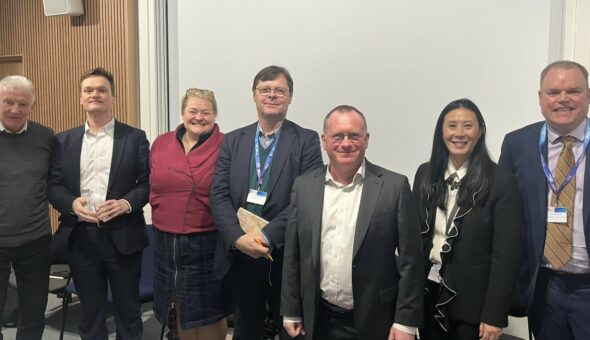Many millions of people still live in absolute poverty, but is there also a good news story to be told here? In this piece, Prize Fellow at the University of Bath School of Management Stefan Hielscher argues that it is only by recognising and learning from the progress that has already been made that we can hope to eradicate poverty for good.
International observances, such as the United Nations’ International Day for the Eradication of Poverty, are often used as international grievance days. The text engraved on the commemorative stone, unveiled during the movement’s foundation in Paris in 1987, states, “Wherever men and women are condemned to live in extreme poverty, human rights are violated. To come together to ensure that these rights be respected is our solemn duty.” This observance is designed to honour the victims of poverty and hunger, give the poorest in the world a voice, and make it heard by governments and the public.
Extreme poverty is a besetting scourge of humankind. Millions of people have died and still die from poverty-related causes such as starvation and curable diseases or suffer from poverty-induced misery, including malnutrition, migration, lack of education, and social and political exclusion. There can be no doubt that poverty is a first-grade moral concern to be called out and eradicated, and many people and organisations have dedicated their careers and missions to do so.
But besides recognising poverty, can this annual commemoration also be a time to appreciate and understand the achievements of past efforts to fight poverty? There is still unspeakable misery for the 783 million people in the world who live in extreme poverty, and the 2 billion more who live on under $3 dollars a day. We must also note that the problem is becoming more concentrated in sub-Saharan Africa where poverty rates are increasing. However, the UN’s first Sustainable Development Goal, “End Poverty,” states in the first instance that “global poverty rates have been cut by more than half since 2000”.
So what is the overall picture? The data, documented by Hans Rosling (the “Gapminder project”), Max Roser and colleagues (“Our world in data”) and Steven Pinker (and many more), suggests the following:
- If absolute poverty is measured in per-capita income of less than 1.90 USD per day (adjusted to inflation and purchasing power), then 94.4% of the world’s population lived in extreme poverty in 1820. In 2015, 9.6% suffered from extreme poverty.
- World population has increased by a factor of 7.8 between 1800 and 2015. In the same period, world production has increased by a factor of 98, in per capita terms by a factor of 12.5. Poverty reduction is, thus, accompanied by a vastly grown population and a thriving economy.
- In 1770, the global average of life expectancy at birth was about 30 years. In 2015, on average, people could expect to live over 70 years at birth. In most Western countries, the average is over 80 (although again we should note that for many countries life expectancy falls below this, particularly in many African nations where it can average less than 60 years.)
On average, the data suggests that we, as a modern society, have made enormous progress in eradicating poverty, hunger, and diseases. However, many academics and practitioners believe we should not note something that has already been achieved. Some fear that talking about the historical progress we’ve made in fighting poverty could promote intellectual smugness and political complacency and belittle the moral problem. Calling out social injustice can motivate individual support, corporate engagement, and political action, and help fight grievances. However, we also need to understand the dimensions of the problem to ask the right questions.
Unfortunately it seems that all too often we don't properly understand what these dimensions are. Studies about the global perception of poverty show high levels of misconception. A recent study surveyed the opinions of people in the West on how they believe global poverty rates have changed over the past 20 years. A startling number - 70% of 56,400 people in 24 countries - get the direction of development wrong. Most people believe that global poverty has increased, not reduced. Well-educated decision-makers and academics show similar misconceptions: most of them get both the direction and the dimension of the problem wrong, too. Often our negative views are exacerbated by the way news is reported, and this can have serious consequences as we start to believe that change and progress is impossible.
Is it appropriate to take a positive view of the last 200 years as we recognise the International Day for the Eradication of Poverty? Yes, because respecting the rights of those who live in extreme poverty also includes the moral duty to understand the reasons why this progress was made possible. Only by doing so can we achieve the goal to create a world without extreme poverty. As Hans Rosling wrote, "It is just as ridiculous to look away from the progress that has been made...When people wrongly believe that nothing is improving, they may lose confidence in measures that actually work".
So what can we learn from the ongoing fight against extreme poverty? Societies need an economic system that supports and encourages entrepreneurs to dedicate their creative talents in a way that benefits society instead of exploiting the poorest of the poor; a system that combines economic growth with a reduction of inequality. The only system so far invented which promises improvements in this direction is the free-enterprise system of capitalism with a strong government to promote productive entrepreneurship.
Importantly, the solution is not to abolish or smash the system but to improve it. And advocating improvements of the system of capitalism is not a hands-off governance approach that gives markets and companies free reign or uncritically cherishes corporate profits. Instead, it implies the thorny task of advocating and implementing the rule reforms necessary to address the many ambiguities and challenges that come in the wake of globalised market competition, including the problems of climate change, inequality, and migration. This requires a strong state, flourishing markets, and a true and active civil society as critical watchdogs of government and business.
Especially in times when the values of enlightenment, economic freedom, and reason are increasingly under attack, it is worth commemorating the systemic reasons for the past achievements in fighting poverty, so that we may ask the right questions for the future.
Header image by rawpixel
Respond



